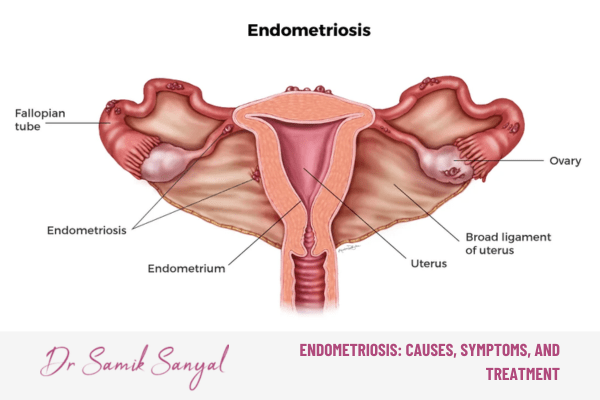Endometriosis is a common but often misunderstood condition affecting women of reproductive age. As the best gynecologist in Kolkata, I’m here to shed light on what endometriosis is, its potential causes, common symptoms, and available treatments.
What is Endometriosis?
Endometriosis is a chronic medical condition where tissue similar to the uterine lining (endometrium) grows outside the uterus, typically in the pelvic area. This displaced tissue can attach to various organs, including the ovaries, fallopian tubes, and even the intestines.
Common Causes:
The exact cause of endometriosis is not fully understood, but several factors may contribute:
- Retrograde Menstruation: This occurs when menstrual blood flows back into the pelvic cavity instead of exiting the body, leading to the implantation of endometrial cells in abnormal locations.
- Genetics: A family history of endometriosis may increase the risk of developing the condition.
- Hormonal Factors: Estrogen is believed to promote endometriosis, as the tissue growth responds to hormonal changes.
Common Symptoms:
Endometriosis can present with a variety of symptoms, including:
- Pelvic Pain: Chronic pelvic pain, often worsening during menstruation.
- Painful Periods: Severe menstrual cramps that don’t improve with over-the-counter pain relievers.
- Painful Intercourse: Discomfort or pain during sexual intercourse.
- Irregular Bleeding: Heavy menstrual bleeding or spotting between periods.
- Infertility: Some women with endometriosis may experience difficulties conceiving.
Treatment:
Endometriosis can be managed through various treatment options:
- Pain Medications: Over-the-counter or prescription pain relievers to manage discomfort.
- Hormonal Therapy: Hormonal birth control or gonadotropin-releasing hormone (GnRH) agonists to reduce tissue growth.
- Laparoscopic Surgery: Minimally invasive surgery to remove endometrial tissue.
- Hysterectomy: In severe cases, the removal of the uterus may be necessary.
Conclusion:
Endometriosis is a complex condition, but with early diagnosis and proper management, women can lead fulfilling lives. If you suspect you have endometriosis or are experiencing related symptoms, consult with a gynecologist for a thorough evaluation and personalized treatment plan.

